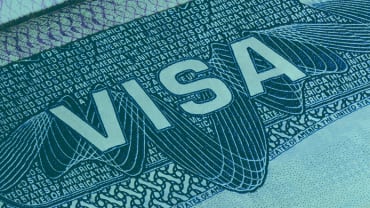Following on from our previous blog, we set out the updated position for EU travel arrangements following the UK-EU Trade & Co-operation Agreement (TCA). We discuss what this means for business travel.
What is the effect of the TCA?
The TCA was implemented in the UK by the European Union (Future Relationship Act) 2020, effective from 1 January 2021. The TCA is provisionally applicable within the EU from 1 January 2021 pending the consent of the European Parliament. Further guidance is expected from the EU in February 2021 about how some provisions will be implemented.
Will British citizens need a visa for short visits to the EU?
No. Normally, British citizens will be able to visit the EU for short visits of up to 90 days within any 180-day period, without a visa. This decision was taken by the EU and the UK prior to the TCA. The 90-day period only starts to run from 1 January 2021 once freedom of movement ended. Any travel prior to that date will not be counted. Further guidance can be found on the UK Government website.
As part of a reciprocal arrangement, the UK will also allow visa-free short-term visits for EU citizens. See more on this below.
What restrictions are in place for longer trips to the EU or for work?
British citizens who wish to stay within the EU for longer than 90 days, or intend to carry out certain activities that are not permitted under the short-term visit rules (including working), will need to comply with the EU immigration requirements that apply to non-EU nationals (third country nationals), as well as the national laws of the relevant member state. That may involve obtaining a work permit under local laws.
What about business travel to the EU?
The TCA states that business visitors are allowed to stay in the EU for a period of up to 90 days in any six month period. Whether or not a work visa will be required, will depend on the country being visited and the type of business activity being carried out. Below are business activities that are permitted and prohibited under the TCA. However, there are some exceptions included for specific countries which makes the rules more complex.
Which business activities are permitted during short-term visits to the EU?
The TCA sets out a list of the business activities that are generally permitted for short term visits to the EU. These include:
- Meetings, conferences or consultations with business associates;
- Certain research (including market research) and design activities;
- Training seminars (provided the training covers "techniques and work practices which are utilised by companies or organisations in the territory being visited"; and the training received is confined to "observation, familiarisation, and classroom instruction only");
- Trade fairs and exhibitions for promoting company products or services;
- Certain limited sales activities, such as taking orders or negotiating the sale of services or goods; entering into agreements to sell services or goods. However, delivering goods or supplying services is not permitted. (See below restriction on sales);
- Purchasing goods or services for an enterprise;
- Certain after-sales or after-lease services essential to a contractual obligation or pursuant to a warranty or other service contract incidental to the sale or lease of commercial or industrial equipment or machinery, including computer software;
- Commercial transaction activity: management and supervisory personnel and financial services personnel (including insurers, bankers and investment brokers) engaging in commercial transactions for a UK organisation;
- Tourism personnel attending or participating in conventions or accompanying a tour that has begun in the UK;
- Translation or interpretation services, provided by employees of a UK organisation.
Note that certain EU countries have not agreed to this full list of permitted activities. These exceptions are set out in the TCA. Therefore, employers may wish to seek legal advice to ensure that the activities are permitted in the particular country being visited without a visa.
What activities and arrangements are prohibited by the TCA under the travel arrangements for short term business visitors?
There are certain prohibited activities and arrangements such as:
- selling goods and services to the general public;
- receiving remuneration locally;
- engaging in the supply of certain services.
Individuals travelling to carry out such activities are not covered by the short-term business visit arrangements.
There are also some additional limits in the TCA in relation to labour or management disputes.
What if the purpose of the visit is to establish a business within an EU country?
Business visitors who are visiting for 'establishment purposes', i.e. those in senior positions responsible for setting up a business in another territory, will not generally need a work permit for entry and temporary stay of up to 90 days within any six-month period. There are restrictions on activities that can be carried out – for example you must not offer or provide services or engage in any economic activity other than that required for establishment purposes, and you must not receive remuneration from a source located within the EU.
What about British nationals who need to travel and stay within the EU to provide services under a contract – so called Contractual Service Suppliers and other Independent Professionals?
Contractual service suppliers and independent professionals will be allowed to enter and stay temporarily within the EU to supply services under certain conditions. They can stay within the EU for a cumulative period of 12 months, or the duration of the contract whichever is less. There are conditions that must be satisfied in order to qualify and a visa application may be required in advance to enter under these provisions.
Does the position differ, depending on which EU country is being visited?
There may be differences in the rules depending on the Member State you are visiting, so employers should seek legal advice to ensure that intended activities are permitted in the country being visited and to check whether a work permit is needed.
The UK Government has also issued guidance for UK businesses on business travel to and providing services for countries in the EEA and Switzerland, which can be found here.
Intra-Corporate Transferees: can UK businesses transfer employees to work in an associated company or office based within the EU?
Provided that the employee meets the intra-corporate transferee requirements and an intra-corporate transferee permit is successfully applied for, they will be able to gain entry and stay temporarily in an EU member state. These arrangements apply to certain categories of employee who are temporarily transferred to a business within the same group of companies in the EU.
How long they are permitted to stay for is dependent on the position they hold. Managers or specialists (as defined in the TCA) can stay within the EU for up to three years and trainee level employees will be able to stay for up to one year.
Intra-corporate transferees can be accompanied by their partners and dependants when placed abroad.
There are set criteria within the terms of the TCA that individuals must satisfy to be classified as intra-corporate transferees. For advice on your individual circumstances please get in touch.
You may also need to seek local legal advice as there may be differences in the rules for intra-corporate transferees and the process for applying for a visa, depending on which country you are visiting.
What about EU nationals visiting the UK for business purposes?
Under the UK's immigration rules, EEA & Swiss nationals can continue to travel to the UK to carry out business-related activities on a short- term basis without a visa. Whether or not your employees will need a visa will depend on the type of activity they are going to be carrying out. The UK rules for business visitors have already been amended to take into account the TCA's terms.
EEA & Swiss nationals visiting the UK can participate in a variety of business-related activities without a visa, for example attending meetings, events, and conferences. In most cases they will be able to stay for up to six months (which exceeds the minimum period agreed as part of the reciprocal arrangements), although business trips will usually be for shorter periods. Longer visits may be scrutinised to ensure that only permitted activities are being carried out.
During the six-month period, EEA & Swiss nationals will be able to enter the UK multiple times but must not live in the UK by means of successive visits.
Certain activities are prohibited by business visitors from the EEA & Switzerland, these include:
- carrying out paid or unpaid work for a UK company or as a self-employed person;
- carrying out a work placement or internship;
- selling directly to the public or providing goods and services.
To carry out such business activity, or for business visits of more than six months, a visa application would need to be made under the UK points-based immigration system or for some other visa that permits work to be undertaken.
Further details on business travel to the UK can be found here.
Have the UK Immigration Rules been amended to deal with the provisions on Contractual Service Suppliers and Independent Professionals entering the UK?
The Temporary Worker International Agreement visa route, which forms part of the UK immigration rules, has been updated to incorporate the provisions for EU and Swiss nationals coming to the UK under the Contractual Service Supplier and Independent Professional categories of the TCA.
For more information on any of the matters raised here, contact Elaine McIlroy, Erin McLafferty, or a member of the employment and immigration team.
Contributors
Partner
Associate













